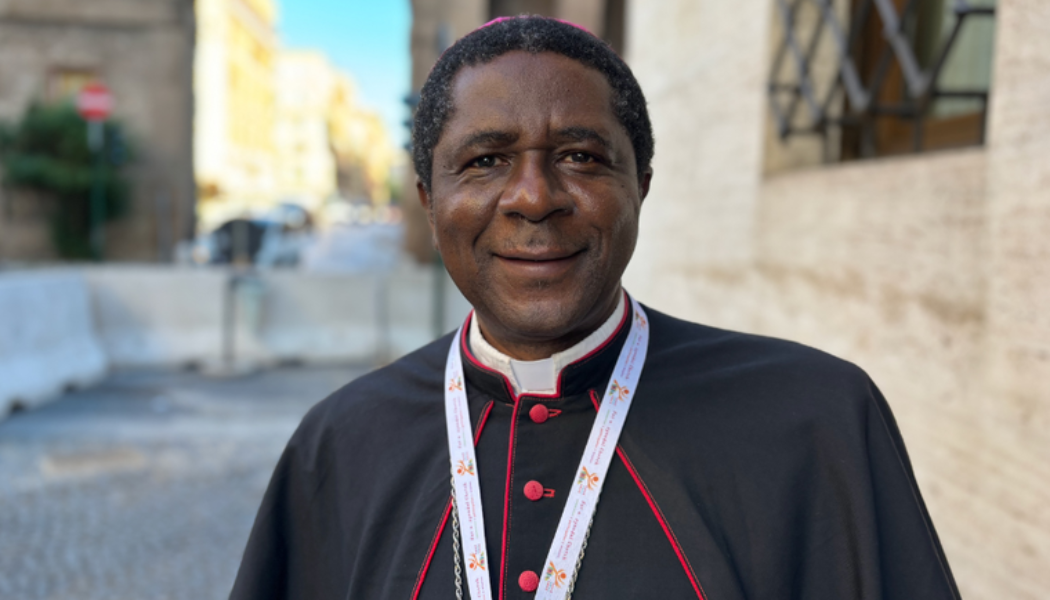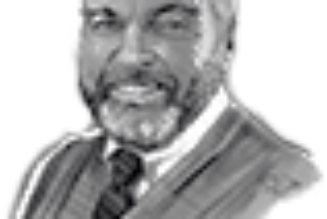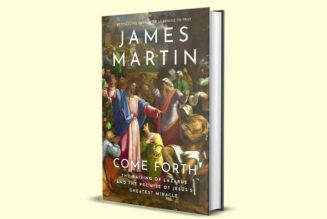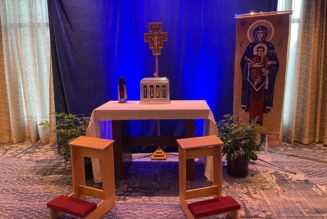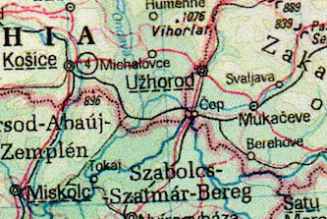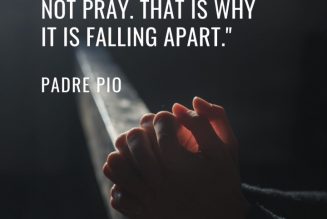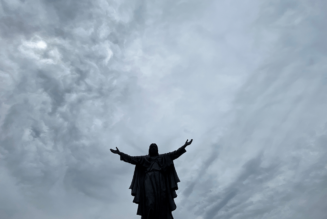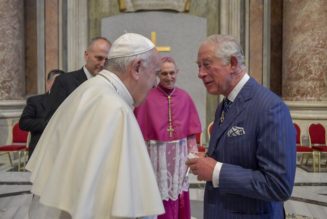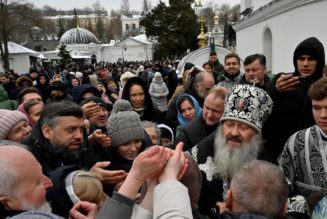
VATICAN CITY — The first assembly of the Synod on Synodality enabled all to express their opinions and the views of African delegates on natural marriage and family were certainly heeded, but the event’s legitimacy continues to be questioned and the synod organizers should reveal a breakdown of voting, a Cameroon bishop has said.
Archbishop Andrew Nkea Fuanya of Bemenda, one of 16 prelates who make up the synod’s ordinary council that oversees the running of the process, said the assembly went “much better” than he expected and that the “conversation in the spirit,” an innovation to tone down polemics, was helpful as it “calmed down tempers.”
In this Oct. 28 interview with the Register in Rome, Archbishop Nkea also discussed what particular contribution African bishops gave to the synod, and how they were able to correct passages on human sexuality in the final report.
“In Africa, we understand marriage as a union between a man and a woman, and anything short of that is witchcraft,” he said. “This is something we said very strongly.”
Archbishop Nkea also explained why he is not bothered by attempts to change the Church’s doctrine through the process (he believes they will fail), and why he considers efforts to upend the Church’s structure of governance originate from a human rather than spiritual point of view, and would mark the end of the Church were they to succeed.
Your Excellency, what is your overall assessment of the synodal assembly? How did it go and what were the most interesting, important aspects to you?
I would sincerely say that it went very well, much better than I expected. The synod atmosphere was completely different. Coming to the round tables, changing tables all of the time, gave the impression we’re working as a group. We’re not just talking to one small section, but able to meet different people, share different ideas on different subjects. That was a complete innovation which really gave everyone the chance to express themselves. It’s not like you took the floor and spoke for three minutes and that was it. No, on all of the subjects you had the chance to say what you felt, what you thought.
So that was a very, very important aspect of the synod. Again, there was also the liberty with which we shared. We weren’t too sure how it would be, this atmosphere of bringing in the laity and non-bishops. That was another thing which made us a little anxious. But after the first week we enjoyed their presence and saw the wealth that came out of their presence. I think it was good. All the other canonical theological arguments notwithstanding, as a gathering of the Church, it was good.
Did you think there was enough variety of opinions, from all sides of the Church, because there was a great emphasis on it being a very inclusive event?
You find all kinds of opinions [in the final report]. I think for me it was a very interesting moment for our Church that we could put all these things on the table, yet have these heated arguments and go out and have coffee and come back and continue. This conversation in the spirit method really calmed down tempers and give us time to know that we’re not doing our work, we’re doing God’s work.
It gave you time to reflect, but did you think that the conversation in the Spirit also, in some way, constrained the ability to really get into subjects, because you’d have to stop speaking after three minutes?
No. Some actually described the conversation in the spirit as “a hijack of their arguments,” but I think that those moments gave us time to realize that it was not your argument. You can have your points, but in these arguments, you are talking about the Church [… ] That gave us time to always go back to the fact that it’s not about who wins or who loses. It’s all about the Church getting better.
I think it was a good synod. There are many canonical questions, which still remain hanging, which we have to continue researching and studying within this one year.
Do you mean canonical questions relating to the legitimacy of the synod?
Yes, the legitimacy of the synod, whether it’s still the Synod of Bishops if you bring in the laity and give them the power to vote. What percentage of laity can you allow into the synod of bishops? Those are some of the canonical questions that are still floating in the air.
The Vatican didn’t give a breakdown of who voted for what, so we couldn’t see how much bishops or laity voted for something. Do you think that’s a problem going forward as, at the moment, a cardinal’s or archbishop’s vote is no different to a layman’s who might hold views contrary to Church teaching?
That is something also that needs to be discussed, because some of the participants expressed the desire, especially the bishops, that we should know how the laity think, and how the bishops think.
As a member of the ordinary council, are you going to try to bring that up?
Oh, sure, I’ll try to propose it, because I think it’s for the good of the Church to be able to know this is a Synod of Bishops. It is not a general assembly or just a synod assembly.
Cardinal Jean-Claude Hollerich, the general relator of the synod, said there was an openness for change in the Church at the synod and that resistance to the “hot topics” such as support for homosexuality, women deacons etc. was “not so great” as people had thought. Does it perhaps concern you that there are certain issues which are being raised and that are contrary to the Catholic faith could get through the synod and become part of the Church’s magisterium?
As a synod council member, … I understood, listening to the arguments, that this synod is not about change of doctrine. This synod is about journeying together, whatever journeying together means. I think those of us who came in there as faithful, adherent to the doctrine of the Church, were more or less surprised that the arguments were not as strong as we had imagined.
We are open to many things. From Africa, we argued about polygamy not because we want polygamy legalized, but because we want accompaniment. Now, we in Africa are given the chance to set up theological commissions, to study polygamy and get pastoral directives that would adapt to that situation in Africa. This is a big opening.
The argument against that is that just by opening this to discussion, it gives the impression that the issue is up for debate, and that the Church will change its teaching down the line. What do you say to that?
Although there are some accidentals that will definitely change, the essence will not change. To start a conversation with polygamists, we had to insert the word “conversion.”
Conversion to what?
Conversion to the values of the Gospel. Whether we’re talking to ‘LGBT’ people or we’re talking to polygamists or we’re talking about ourselves, there must always be the call to conversion, conversion to the Gospel. What are the Gospel values? Entering into dialogue with all of these people is always in view of conversion. If we take that out, then we stop being evangelical. We are no longer backed by the Gospel.
Can it be a genuine call to conversion if the teaching of the Church is not restated or, as Cardinal Gerhard Müller said, divine Revelation and even Jesus Christ were set aside during the synod?
When you get 360 people together, not everybody will think the same thing from the same perspective. I think we kept going back to the point that in the center, the focus is Christ. We kept going back to that point. Some people will think we didn’t go back enough, some will think we’re Christ-ifying the document too much, but I think from my perspective, we never lost sight of the fact that we kept going back.
Some observers argued that this causes harm as it can scandalize the faithful, because they feel that if these issues are allowed to go on being discussed rather than the Church just saying No, it appears that there’s a general will to get them through.
Yes, one of the things I have to say to you is that you must realize that the Church today is under the particular papacy of Francis. Francis is not John Paul II. These are the adaptations that must be in our mind. John Paul said “Enough,” Francis says “Talk,” but the important thing is that we are teaching what the Church says and we’re moving on. The Church remains. For me, this is a consolation.
The Church cannot be led into error.
No, the Church cannot. The Church is guided by the Holy Spirit.
What do you think was the African bishops’ general and most important contribution to the synod?
One of the biggest contributions that Africa brought to this synod is the idea of Small Christian Communities. If we don’t go back to Small Christian Communities, all this about broad-based consultation, getting everybody involved, is a pipe dream […] When you are looking at those Small Christian Communities, you’re looking at families and no one is left behind. That’s why Africa opted for the image of Church as a family, not a tent. I think this is something you see. At the end of this meeting, nobody talked about a tent anymore. We’re all about family. This is one of the big things that Africa brought on board, that in Church is the family of God.
Another contribution that Africa brought up within this synod was our view on the teaching of the Church, on the human person, and human sexuality. In Africa, we understand marriage as a union between a man and a woman, and anything short of that is witchcraft. This is something we said very strongly. We cannot be talking about sensitivities and orientations within the Church setting when this is what the Gospel says. This is what the teaching of the Church has said all along and this is what various cultures believe.
Did you feel you were listened to and your views taken on board?
Oh, yes. We were taken on board very seriously — very, very seriously. I’m very, very happy, especially with this aspect of the Church’s teaching on the human person and sexuality. It was a big concern for Africa. The fact that we moderated it and took out certain words that were very political, I think we are happy with that.
Also the cry of the poor was very strong at this synod. Did you think that was adequately dealt with?
We spoke about material poverty and then we didn’t focus as much, although we spoke about it, [about] spiritual poverty, because spiritual poverty is what is leading us a lot into material poverty.
One other big issue that was mentioned before the synod was this change of Church governance into an inverted pyramid. The final document talks about a profound spiritual conversion being needed as the foundation for any effective structural change, as though there’s a dominant wish to upend the Church’s governance and invert the hierarchy. What is your view on this?
If you invert the hierarchy, the Church is no longer Catholic. There is no time the bishops will cease from being successors of the apostles. There’s no time that the Pope will cease from being the successor of St. Peter […] People are looking at it from the purely human point of view. I think most of those who are bringing these arguments are taking a more human than spiritual or even physiological [standpoint].
Are you concerned that that way of thinking could become predominant, especially as the synod is considering the views of the laity who also get a vote?
I’m not really worried because those who argue this way are a tiny minority, but they speak very loudly. When you get down to the nitty-gritty of the issue and you start talking with people, they are not interested. They just want to go to heaven. From the time of the apostle, you’ve always had heretics trying to infiltrate, so it’s normal. We have a saying in French: Les chiens aboient, la caravane passe — “The dogs are barking; the caravan is moving on.” Nobody is bothered about those things. Christians understand their doctrine, the teaching of the Church, and they’re going on.
And the noise is ignored.
It’s ignored. I think we should look at the broader picture. We will get worried if the caravan stops. As long as the caravan does not stop, then the dogs bark.
